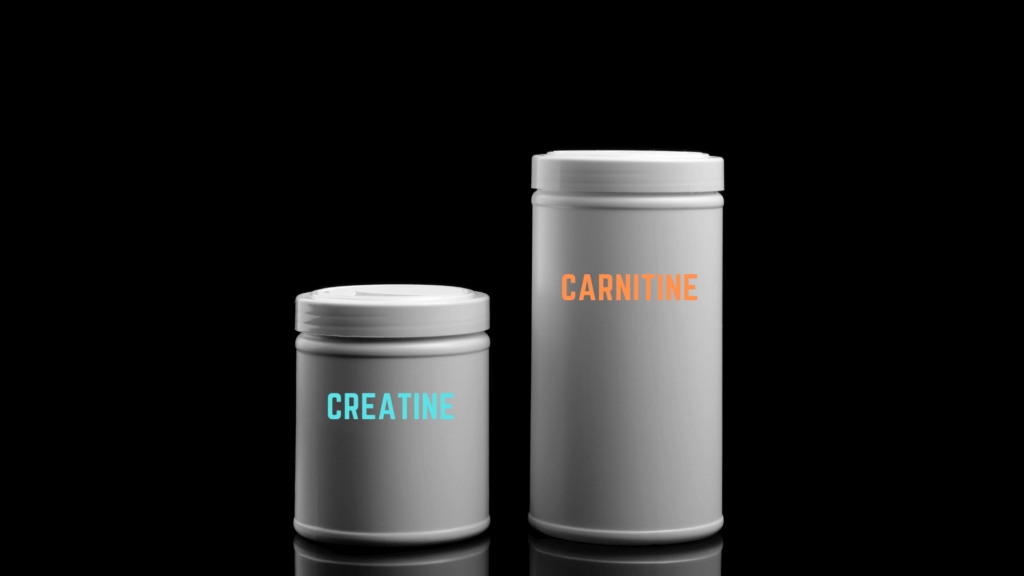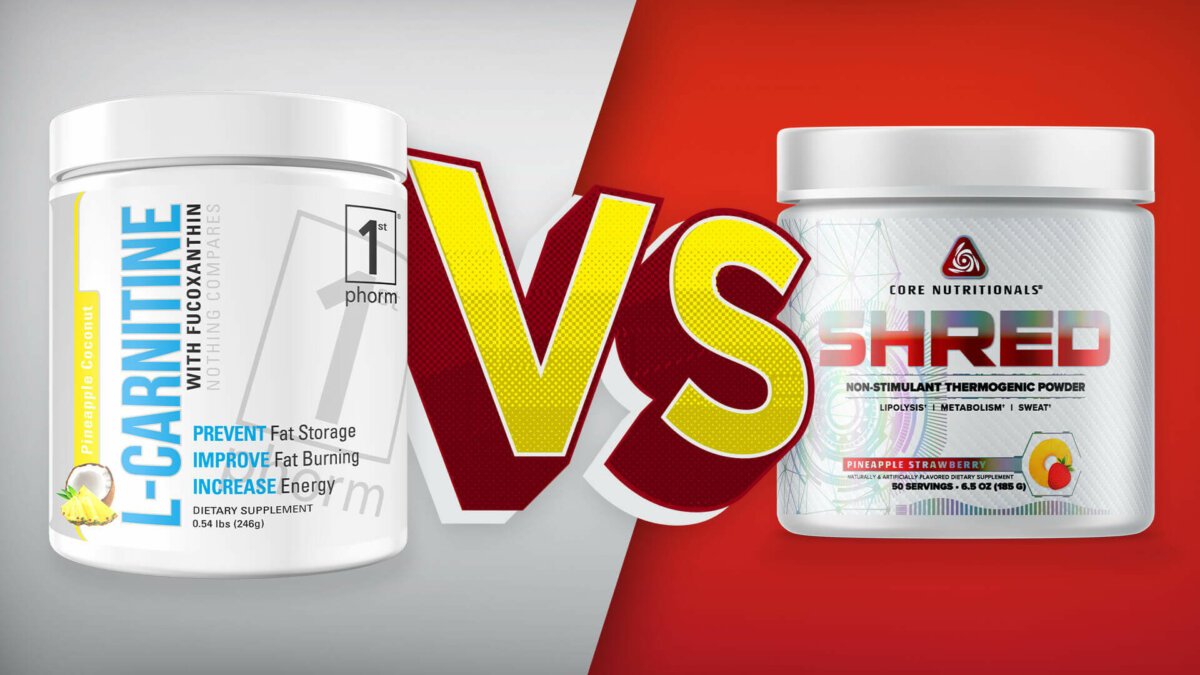Carnitine and creatine are two popular supplements that are often used to boost energy and metabolism. But what are the differences between them, and how do they affect your body?
In this blog post, we will compare carnitine vs creatine, and explain how they work, what benefits they offer, and what side effects they may have.
Whether you are looking for a way to improve your athletic performance, lose weight, or support your health, this post will help you decide which supplement is right for you.
Carnitine vs Creatine: What are they and how do they work?
Carnitine and creatine are both natural substances that are involved in energy metabolism in the body.
However, they have different roles and mechanisms of action. Here is a brief overview of each supplement:
Carnitine
Carnitine is a compound that helps transport fatty acids into the mitochondria, the powerhouses of the cells, where they can be burned for energy.
Carnitine is produced by the body from the amino acids lysine and methionine, and can also be obtained from food sources such as meat, fish, dairy products, and some plant foods.
Carnitine may help improve endurance, fat loss, brain function, and heart health by enhancing the use of fat as fuel and preventing its accumulation in the tissues.
Creatine
Creatine is a compound that helps regenerate adenosine triphosphate (ATP), the main energy currency of the cells.
Creatine is synthesized by the body from the amino acids glycine, arginine, and methionine, and can also be found in food sources such as meat, seafood, and eggs.
Creatine may help increase strength, power, muscle mass, and performance by providing a rapid source of energy for short bursts of intense activity.
Benefits and Side Effects of Carnitine
Carnitine has been studied for its effects on various aspects of health and performance. Some of the potential benefits of carnitine supplementation include:
Fat loss
Carnitine may help increase fat oxidation and reduce fat mass by enhancing the transport of fatty acids into the mitochondria for energy production.
Several studies have shown that carnitine supplementation can reduce body weight, body fat percentage, waist circumference, and BMI in overweight or obese individuals.
Carnitine may also help prevent weight regain after a period of calorie restriction.

Endurance
Carnitine may help improve endurance performance by increasing the use of fat as fuel and sparing muscle glycogen stores. This may delay fatigue and enhance exercise capacity.
Brain function
Carnitine may help protect the brain from oxidative stress and inflammation, which are associated with cognitive decline and neurodegenerative diseases.
Carnitine may also improve blood flow to the brain and enhance neurotransmitter function.
Some of the possible drawbacks of carnitine supplementation include:
Gastrointestinal distress
Carnitine may cause nausea, vomiting, diarrhea, abdominal cramps, or bloating in some people, especially at high doses or when taken on an empty stomach.
To minimize these effects, it is recommended to start with a low dose and gradually increase it over time, as well as to take carnitine with food or water.
Fishy odor
Carnitine may cause a fishy odor in the urine or sweat due to its metabolism by intestinal bacteria.
This is usually harmless but may be unpleasant or embarrassing for some people. To reduce this effect, it is advised to drink plenty of water and maintain good hygiene.
Thyroid function
Carnitine may interfere with thyroid hormone production or uptake by inhibiting the enzyme 5’-deiodinase, which converts the inactive form of thyroid hormone (T4) to the active form (T3).
This may lead to hypothyroidism or worsen existing thyroid disorders. Therefore, people with thyroid problems or those taking thyroid medication should consult their doctor before taking carnitine supplements.
Drug interactions
Carnitine may interact with certain medications, such as anticoagulants, antibiotics, anticonvulsants, or chemotherapy drugs, by altering their absorption, metabolism, or excretion.
This may affect their efficacy or safety. Therefore, people taking any prescription or over-the-counter drugs should check with their doctor or pharmacist before taking carnitine supplements.
Benefits and Side Effects of Creatine
Creatine has been extensively researched for its effects on muscle and exercise performance. Some of the potential benefits of creatine supplementation include:
Strength and power
Creatine may help increase strength and power output by replenishing the ATP stores in the muscles, which are used for short bursts of high-intensity activity.
Several studies have shown that creatine supplementation can enhance strength, power, sprint speed, jump height, and throwing performance in various types of resistance or explosive exercise.
Muscle mass
Creatine may help increase muscle mass by increasing water retention in the muscle cells, which causes them to swell and stimulate protein synthesis.
Creatine may also increase the expression of genes involved in muscle growth and reduce the breakdown of muscle proteins.
Several studies have shown that creatine supplementation can increase lean body mass, muscle cross-sectional area, and muscle fiber size in conjunction with resistance training.
Recovery
Creatine may help improve recovery from exercise by reducing muscle damage, inflammation, soreness, and fatigue.
Several studies have shown that creatine supplementation can decrease markers of muscle damage, inflammation, soreness, and fatigue after acute or chronic exercise.
Some of the possible drawbacks of creatine supplementation include:
Weight gain
Creatine may cause weight gain due to increased water retention in the muscles. This is usually temporary and reversible, but it may be undesirable for some people who want to maintain a certain body weight or appearance.
To minimize this effect, it is advised to drink plenty of water and monitor your body weight regularly.
Dehydration
Creatine may increase the risk of dehydration by drawing water into the muscles and reducing urine output.
This may lead to electrolyte imbalance, heat stress, or kidney problems. To prevent this effect, it is recommended to drink plenty of fluids and avoid exercising in hot or humid conditions while taking creatine supplements.










